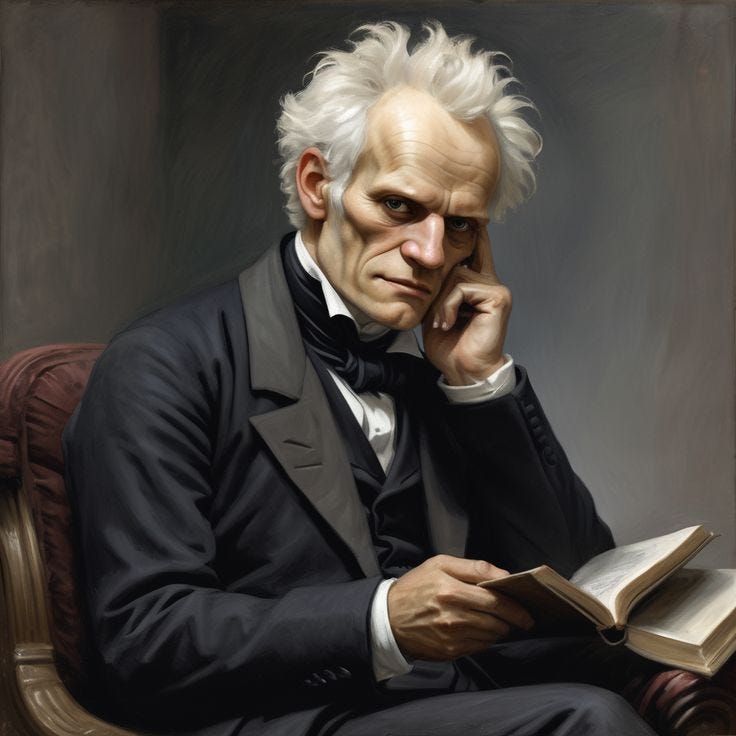Reflections on Schopenhauer
Issue 2: The Primacy of the Will Over the Intellect in Schopenhauer's Philosophy
Welcome back to the second episode of our series, "Exploring Schopenhauer." Today, we’re delving into one of Arthur Schopenhauer's most intriguing and provocative ideas: the primacy of the will over the intellect. Schopenhauer's emphasis on the will as the driving force of human existence sets him apart from many other philosophers who placed reason and intellect at the center of their philosophies. Let's explore why Schopenhauer considered the will to be far more powerful and fundamental than the intellect.
The Concept of the Will
Imagine your deepest desires, those powerful impulses that seem to arise without your bidding. For Schopenhauer, these are manifestations of the will, an all-encompassing, irrational force that underlies all of reality. The will is not just a part of us; it is the very essence of existence. Schopenhauer saw the will as a blind, insatiable drive that manifests in various forms, from basic survival instincts to complex human desires.
The Will as the Essence of Reality
Schopenhauer's philosophy posits that the will is the foundation of all things. Unlike other philosophers who viewed the world through the lens of rationality, Schopenhauer saw the will as the fundamental reality behind appearances. He argued that the physical world and our intellectual perceptions are mere representations of this underlying will.
In human beings, the will manifests as our deepest desires and impulses, often overriding rational thought. Schopenhauer believed that our actions are primarily driven by these unconscious forces rather than by reasoned decision-making. This was a radical departure from the Enlightenment thinkers who placed reason on a pedestal.
The Intellect as a Secondary Force
For Schopenhauer, the intellect is an instrument used by the will to achieve its ends. Think of it as a sophisticated tool that helps the will get what it wants. While the intellect can help us navigate the world and solve problems, Schopenhauer saw it as having a limited role compared to the all-encompassing will. The intellect, according to Schopenhauer, is often subservient to the will, rationalizing our desires and actions rather than guiding them.
The Implications of the Primacy of the Will
Now, you might wonder, what does this mean for us? Schopenhauer's view of the will as an insatiable force leads to his famous pessimism. He believed that because the will is never fully satisfied, human life is characterized by constant striving and suffering. Our desires are endless, and achieving one goal often leads to the emergence of new desires. This perpetual dissatisfaction is at the heart of human suffering.
But Schopenhauer didn't stop at identifying the problem. He believed that recognizing the primacy of the will could lead to greater compassion and empathy. Understanding that others are driven by the same insatiable will can foster a sense of shared suffering and encourage moral behavior. It’s a call to recognize our common humanity and the universal struggles that bind us.
Conclusion
Arthur Schopenhauer's assertion that the will is more powerful than the intellect challenges traditional views of human nature and rationality. By placing the will at the center of his philosophy, Schopenhauer offers a profound and often unsettling view of human existence. His ideas invite us to reconsider the forces that drive our actions and the nature of our desires.


